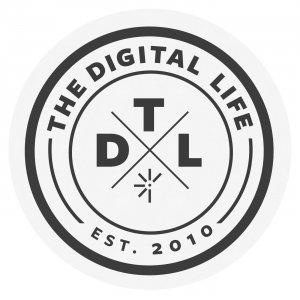The Digital Life

Internet Takedown
Jon: Welcome to Episode 179 of the Digital Life, a show about our insights into the future of design and technology. I'm your host, Jon Follett, and with me is founder and co-host, Dirk Kmemuyer.
Dirk: Greetings, listeners.
Jon: For the podcast this week, we'll discuss the distributive denial of service attack that took out the Internet on the East Coast of the United States on this past Friday. The attack was aimed at DYN, which is an Internet infrastructure company, which is actually in New England. It's in New Hampshire. They offer DNS services or domain name services. There are these multiple waves of attacks on their Internet directory servers, just this deluge of malicious requests. It totally disrupted their DNS servers and equivalently took out the Internet for a little while. What I think is interesting about this particular attack, aside from the fact that it shut down the Internet for a large number of people on the East Coast, is that it was propagated by this Internet of Things, this IOT, Bot Net. Essentially things like: your webcam, your DVR, your router. Those can be altered with malicious code, malware. Right? We all hear about malware. It was this Bot Net that was actually attacking DYN, sending all these malicious requests. I thought this was a very public example of an IOT outcome, that is just patently malicious, rather than beneficial. We hear a little bit about the security issues with the Internet of Things. It's becoming a growing concern. We also hear about how miraculous the IOT is going to be, once everything is wired up. Right?
This is an interesting case study because this is an emerging technology and right now, one of the most public events associated with the IOT is now this Internet outage. It makes you ask a few more questions about the future of this kind of implementation, when you're talking about smart cities, you're talking about smart buildings, and what kinds of security concerns there are going to be. Dirk, were you inconvenienced on Friday? Were you trying to get on Netflix or Twitter or something and unable to do so?
Dirk: I got to be honest. I wasn't even aware of it. I'm perpetually online, so, I'm not sure why that is. It either didn't hit me or it was so short, that it had no impact on me. The first question, in my mind is, was Vladimir Putin behind it, Jon?
Jon: Oh no. We're going to go down that rabbit hole. Since everything-
Dirk: I'm trying to make our listeners laugh a little bit.
Jon: Since everything will be blamed on Putin, you know, any sort of internet problem, then we can safely say that that's probably what the case was. Aside from that, this is a show about emergent technology, and we often, at least I tend to take a sunny-side up sort of view about the great things that we'll be able to do. It seems to me like, as with a lot of technologies, the hacking community is miles ahead, at least right now. They're the earliest.
Dirk:Criminals always are. Criminals drive security. Not security drives criminals.
Jon: Yeah, and it's interesting to me, because you don't hear ... I assume that there are lots of smart traffic flow implementations that are benefiting me in the Boston area. Things like that. I guess, the public nature, this is something that's almost like, it's not quite the equivalent of water or electricity, but you sort of take for granted that when you type in your website address, unless you're on a bad connection, that you'll be able to get where you need to get. You're going to do business, your entertainment is online, et cetera. In some ways, it's like a public utility being taken out for a few hours by a malicious Internet of Things implementation.
Dirk: No I think it is. I don't think it's "like". I think it is. I mean, water, we would literally die without water, so let's put water aside. Electricity, to me, would I rather have general electricity for other things, or just be able to use the internet?






 Visit Podcast Website
Visit Podcast Website RSS Podcast Feed
RSS Podcast Feed Subscribe
Subscribe
 Add to MyCast
Add to MyCast